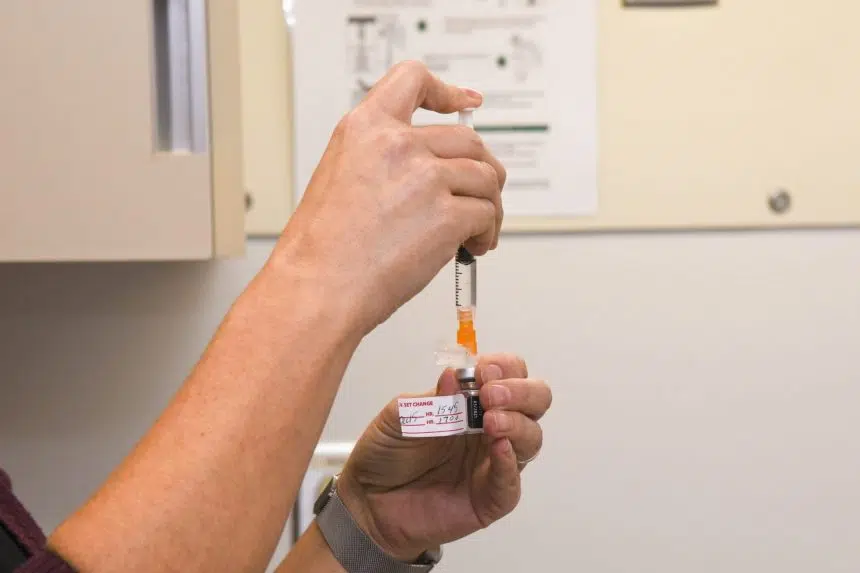As thousands of people across Saskatchewan get their first dose of one of the current COVID-19 vaccines, some may wonder if there’s one shot that’s better than the others.
“When you look at the data, all of the vaccines performed equally well. They all did what they are supposed to do in preventing severe disease and death,” Dr. Joseph Blondeau, a Saskatoon-based clinical microbiologist, explained Wednesday.
There are currently four vaccines approved in Canada. Three of those are now being administered in Saskatchewan: Moderna, Pfizer-BioNTech and Oxford-AstraZeneca.
“You can’t compare the efficacy rates because those vaccines were not compared head to head in individual trials and as a consequence, you actually don’t know whether one is truly better than the other,” said Blondeau.
The current vaccines do have efficacy against the COVID variants, according to Blondeau. Those variants have nestled into Saskatchewan, with most cases in the Regina zone.
He said the World Health Organization is monitoring available data and companies are investigating the possibility of offering a third shot, all to ensure they stay on top of the mutating virus.
He addressed concerns around the potential side effects of AstraZeneca’s shot. It was temporarily paused in a number of European countries after some people who got their first shot then reported blood clots.
Blondeau said cases of blood clots are normally occurring within the population, including those who haven’t been vaccinated. There are other reasons he said why a blood clot can happen.
“Of course there’s increased scrutiny at this time because of vaccines being rolled out to millions of people around the world,” he said.
“People are cautious when they see side effects arise within a vaccinated individual and I think it’s a normal process to try and make sure that whatever side effect it is, it’s not related to the vaccine and at this point in time, there’s no evidence that (the blood clot issue) is.”
Moderna also announced it plans on including children in its upcoming clinical trials to see how effective its vaccine is on kids between six months and 12 years of age. Blondeau called that a tremendous idea that’s probably long overdue.







